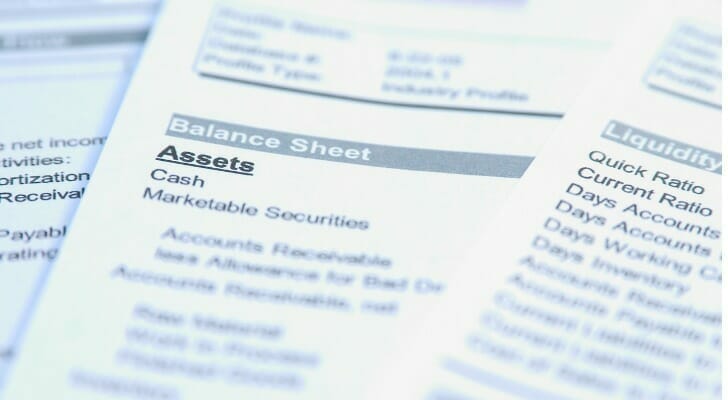One of the most important features of an asset is how quickly or slowly it can be converted into cash. Whether it’s investors seeking details about a company’s finances or market players trying to figure out the fair market value, an asset’s liquidity or lack thereof, known as illiquidity, is a vital piece of financial information. Learn what an illiquid asset is and why it matters in both accounting and finance.
A financial advisor can help you create a financial plan for investing.
What Is an Illiquid Asset?
A liquid asset is one that can be quickly sold without a significant loss in value; an illiquid asset is one that can’t be quickly resold without a significant loss in value. For example, holdings in a bank account are liquid assets. Most stocks are also considered liquid assets because, even though they are not actual cash, there is a readily available market to sell them quickly.
As a result most accounting standards consider liquid assets alongside an entity’s cash holdings. For example, a company may list “cash and other liquid assets” as a single entry on a financial disclosure.
Illiquid assets are the opposite. These are assets that cannot be quickly sold, that are difficult to sell or that cannot be sold without incurring a significant loss in value.
Illiquid assets can be hard to sell for a wide variety of reasons. Some, as noted above, come with contracts that make them difficult or impossible to quickly convert into cash. For example, a 401(k) would not typically be considered a liquid asset for a preretirement individual, since converting it into cash would incur a significant tax penalty.
Other assets are illiquid, because they are simply difficult to sell. Artworks, collectibles and even many small capitalization or privately held stocks often fall into this category. While they may have significant value, finding a buyer may be a time-consuming process. They are not, as a result, assets that you can count on being able to easily convert into cash.
The definition of illiquidity is somewhat subjective and open to interpretation, as there is no legal definition of what it means to quickly convert something into cash. Generally speaking, however, if an asset would require more than 24 to 72 hours to convert into cash for fair market value many investors will consider it illiquid.
Examples of Illiquid Assets
Real estate is one of the most common illiquid assets, since selling a home, rental property or land can take weeks or months depending on market conditions. Even if you find a buyer quickly, inspections, appraisals and financing approvals can slow the process. Other physical assets like art, antiques and collectibles also fall into this category because their value depends heavily on finding the right buyer at the right price.
Mutual funds are a common example of an illiquid asset. Many have rules that restrict the owner’s ability to sell immediately. While it’s still ordinarily possible to sell your shares in these funds, doing so typically incurs a steep penalty. (This is not always the case, though. Mutual funds that allow you to trade their shares freely are a liquid asset.) As a result, traders created exchange-traded funds (ETF) as a liquid counterpart to the typically illiquid mutual funds.
Significance of Illiquid Assets

Illiquidity is essential to many aspects of both accounting and investing. From an accounting perspective, reporting liquid assets is a requirement of many different forms of financial disclosures. A company may have to distinguish its liquid and illiquid assets for the Internal Revenue Service, the Securities and Exchange Commission, lenders, potential investors and shareholders, just to name a few.
Outside of accounting, liquidity is a key element of price setting in any market. Liquid assets tend to be fungible, like stock certificates or bonds, and they tend to exist in very busy markets. These two features generally give rise to well-established and transparent pricing. When you go to sell a liquid asset, like a diamond, you generally know what it’s worth and will typically have little trouble getting that market price for your property.
Illiquid assets, on the other hand, tend to be infrequently traded and are often unusual or unique. This makes the market for these assets far less established and underscores the importance for investors to know the liquidity risk of an asset before they buy it. Instead of relying on the prices that buyers and sellers set within the last hour (or last few seconds even, as on a stock exchange), you may have to judge an asset’s value by prices set months ago. In many cases, you may not have any identical market and may have to negotiate prices virtually from scratch.
For example, selling land is always a unique negotiation. Each plot of land is singular, with no other exactly like it on the market. While you can reference the last price for which this land sold, that data will typically be years out of date, and may not reflect new construction or other changes. This deal must be struck anew each time, with the fair market price for the asset determined between buyer and seller rather than by the market at large.
This ambiguous market complicates and slows the trading of an asset to the point of illiquidity.
Bottom Line

Illiquid assets can play an important role in building long-term wealth, but they also require careful planning because they can’t be quickly converted into cash. From real estate and collectibles to private business interests and restricted investments, these assets often come with extended sale timelines and specialized markets. Understanding what’s illiquid in your portfolio helps you balance stability, growth and accessibility when managing your financial life.
Tips on Investing
- How should liquidity play into your investment strategy? A financial advisor can provide valuable insight into that question. Finding a financial advisor doesn’t have to be hard. SmartAsset’s free tool, matches you with vetted financial advisors who serve your area, and you can have a free introductory call with your advisor matches to decide which one you feel is right for you. If you’re ready to find an advisor who can help you achieve your financial goals, get started now.
- Now that you know about illiquid assets, learn more about their counterparts. In our article on the subject you can learn about assets that accountants and investors typically consider highly liquid. These are the products which you can consider the next best thing to cash, and that can be very valuable.
Photo credit: ©iStock.com/absolut_100, ©iStock.com/domoskanonos, ©iStock.com/FierceAbin
